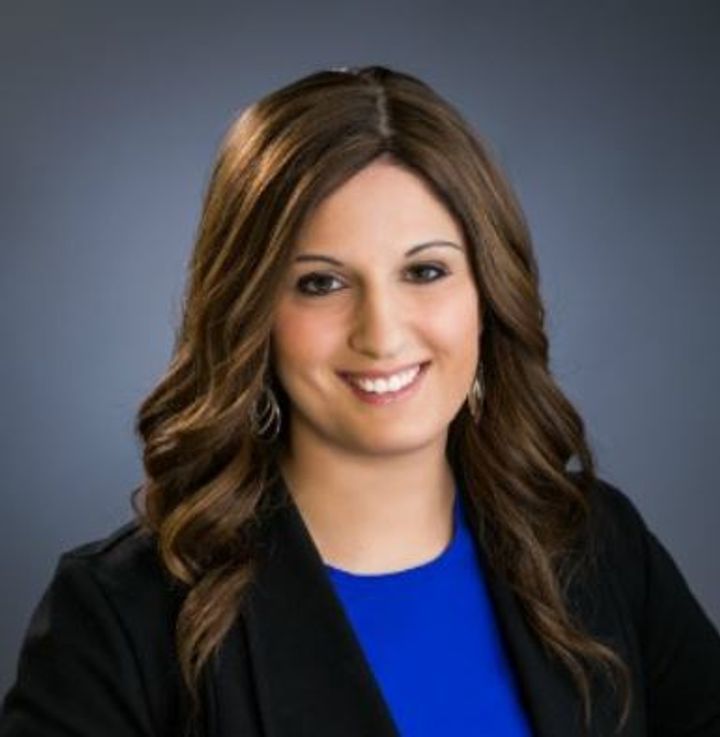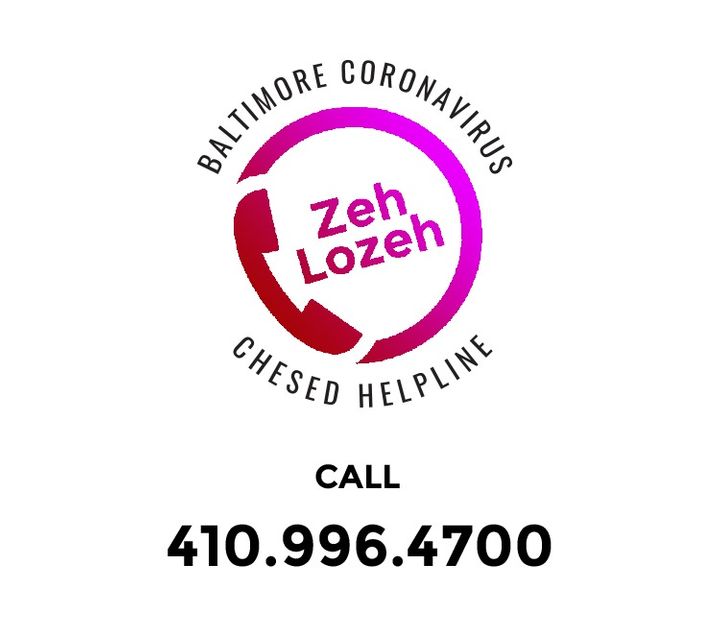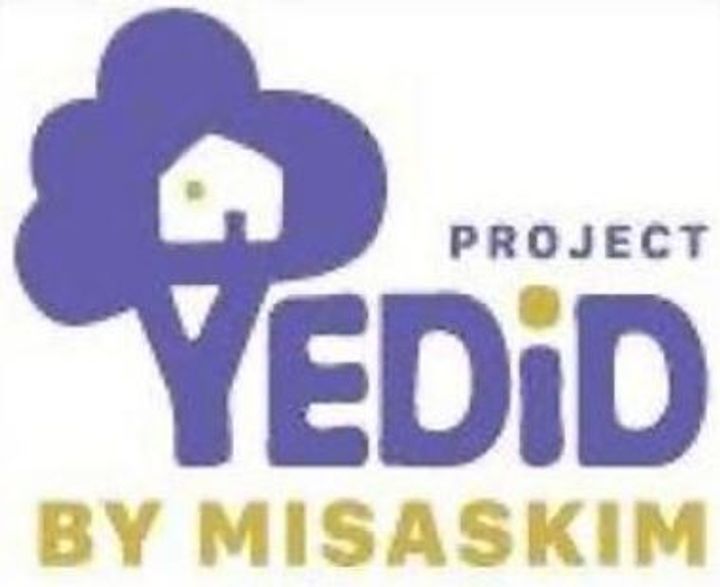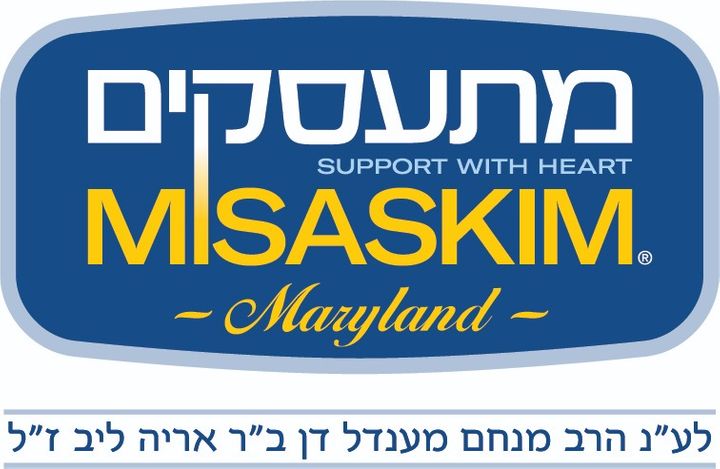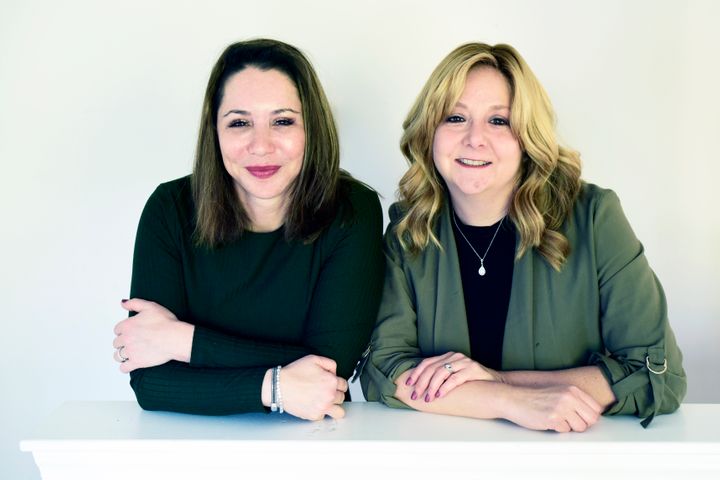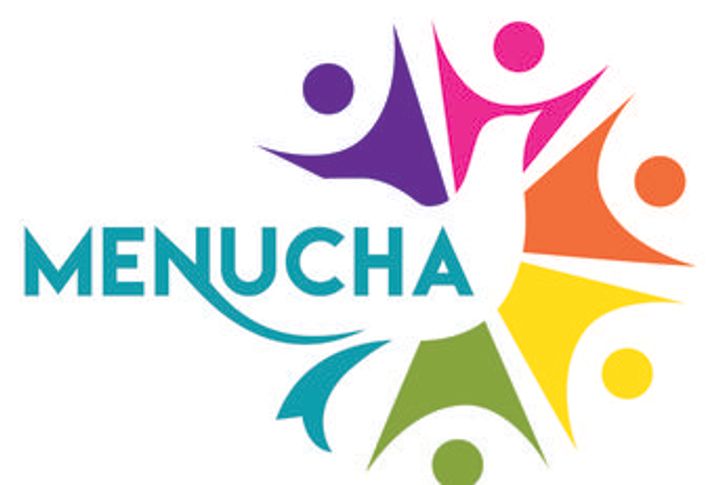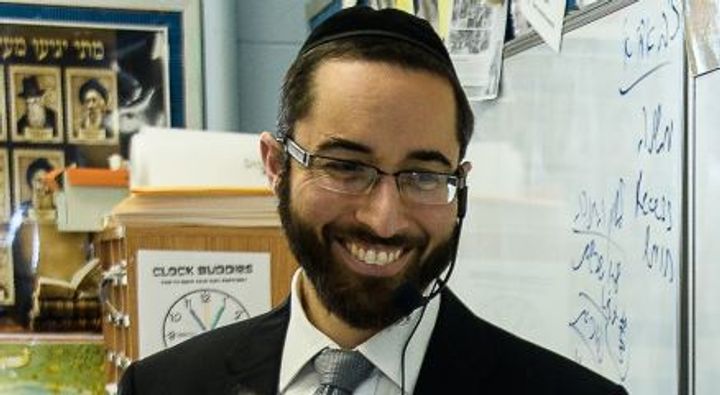Baltimore, MD - April 23, 2020 - HEROES. There is no more appropriate word to describe the many faces behind the numerous community initiatives put into place to keep us safe from COVID-19, per Governor Larry Hogan’s executive orders. I am grateful to many of these heroes who graciously took time out of their busy schedules to share the backstory of these self-sacrificing herculean efforts on behalf of our community. Mi K’Amcha Yisrael – Who is like Your nation, the Jewish people? – and, Mi K’Amcha Yisrael B’Baltimore – What community is like ours?
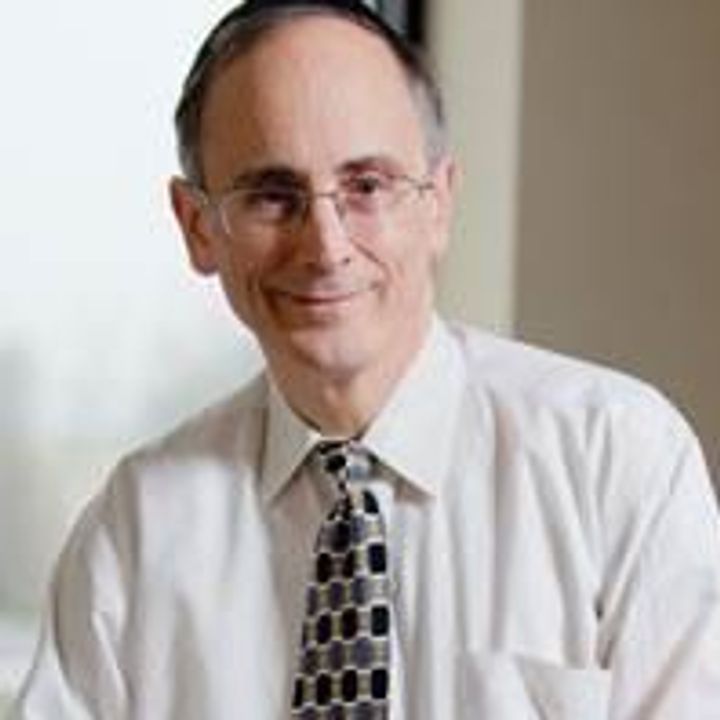
Of course, as always, Chesed Fund/Project Ezra President Frank Storch and Councilman Yitzy Schleifer, were the first to initiate several of the life-saving initiatives in our community which keep us safe, including from Coronavirus. Continuing to selflessly and tirelessly work around the clock for our beloved community - since even prior to Purim, when they had the foresight to realize that we were unprepared for the worst - they each preferred to use their valuable time that my interview would take up, to keep working to help save people, instead. We all owe a debt of gratitude to these extraordinary community members!
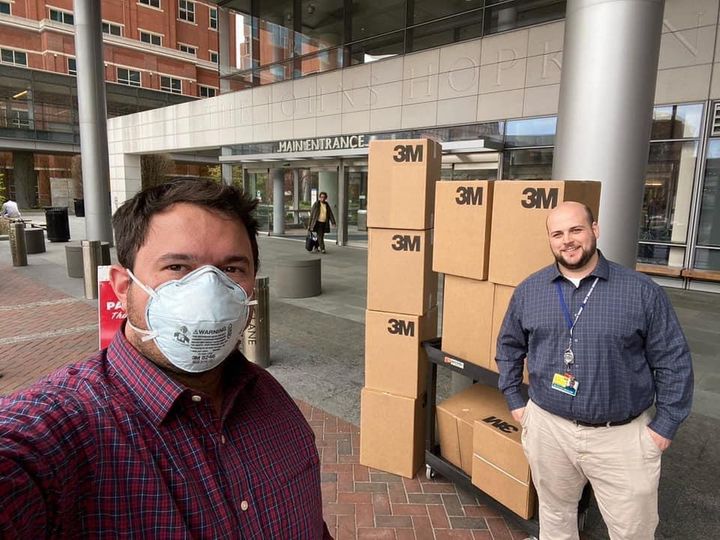
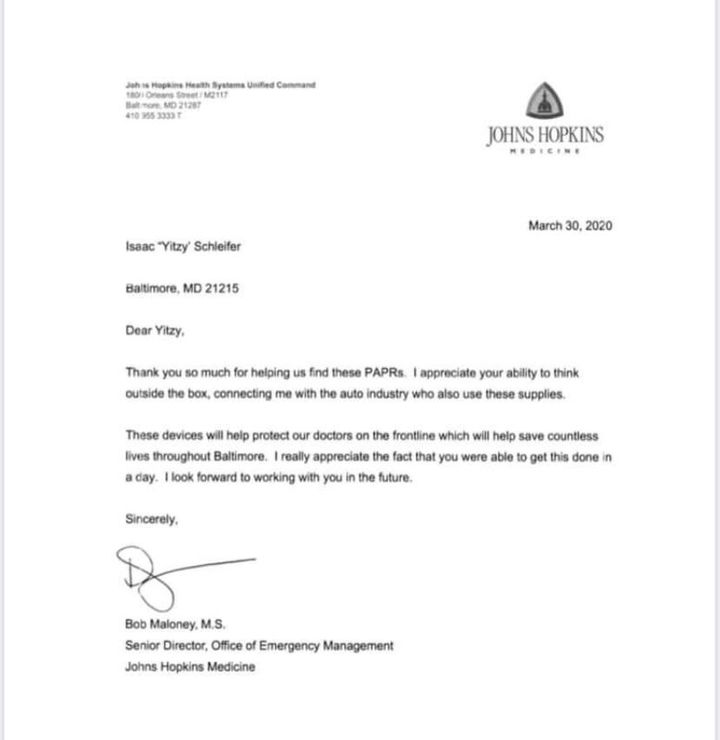
Yitzy’s efforts to secure papers from the auto industry resulting in $40,000 respirator machine donation to Hopkins
Frank has donated well over 50,000 N-95 masks to those on the front lines and to just about every organization in town that is on the front lines. He has also donated an unprecedented amount of hand sanitizer and sanitizing supplies and wipes. He helped outfit area hospitals as well as law enforcement with supplies when nobody else could secure those supplies. He had information and resource guides created prior to most people in town ever hearing the word coronavirus. He was also the first person to put out warning signs on shul doors and he has helped Jewish communities across the globe in their preparedness in response to coronavirus. These are just some of the plethora of initiatives he has put into action to save lives. Community leaders attribute his efforts towards saving our community from, r”l, the devastation that many other communities across the world are facing.
It was Yitzy who hosted a meeting with executive directors of local schools to shut down Purim and other upcoming events. This was done ten days prior to the first confirmed case in Baltimore. That closure led to many other organizations and groups closing or restructuring their events to put other safety measures in place. School and community leadership have applauded the councilman’s efforts as being the first action taken in our community with regard to the pandemic.
Delegate Dalya Attar has been pushing out all the information about state programs as well as assistance for unemployment issues and government business programs. She has been a leader in making sure these state programs don’t leave her district behind.
First Contact: Ahavas Yisrael
An initial conversation with Ahavas Yisrael Executive Director, Rabbi Boruch Brull, was my introduction to these amazing, interfacing communal efforts – a true testimonial to all the chesed and achdus that have become hallmarks of our community.
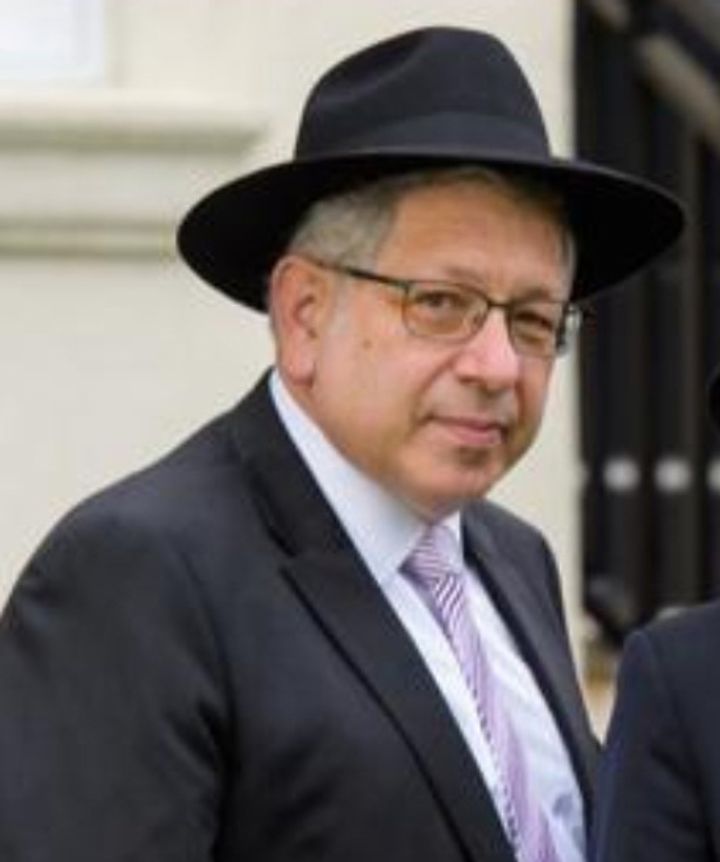
Ahavas Yisrael Director Rabbi Baruch Brull
“The credit goes to the Rabbanim, medical professionals, and the chashuva baal habatim in Baltimore, who foresaw, to a great extent, what was coming, and said, ‘Let’s do what we can to prevent something terrible,’” begins Rabbi Brull. “There were so many people who took the lead in town. I am afraid that if I try to mention them by name, I will leave someone out. This group, headed by Rabbi Silber and Mr. Yehudah Neuberger, along with many community organizations and government officials, called itself “Community Preparedness” and kept us all abreast with resources available during this pandemic: financial, medical, food delivery, etc. This very powerful community effort is definitely a result of the amazing achdus we have in Baltimore.
“All of the Rabbanim worked as a team. On a daily basis, they discussed by phone, the numerous topics that came up,” continues Rabbi Brull. “Closing schools and shuls, as quickly as they did, was heart-wrenching and heartwarming at the same time. In Baltimore, we had some inkling as to what likely lay ahead as we watched the pandemic events in New Jersey and New York areas, so they immediately began setting up guidelines to help keep us safe. The Rabbanim contacted Ahavas Yisrael to make sure there would be sufficient funds available to meet the needs of the community for all those who would be losing jobs, out of work, and for businesses closing or struggling.
“Ahavas Yisrael put together an emergency campaign. The Rabbanim sent out letters and emails to their shul members to make sure we could meet the goal of this $2 million campaign. It did not take very long before a steady stream of phone calls started, with people, many of whom had never contacted Ahavas Yisrael before, requesting financial assistance to make yom tov and to help pay their bills.
Rabbi Brull notes there were daily conversations and Zoom meetings in which several ideas were discussed. One result was a group of Rabbanim and dedicated community leaders who established a blog site, JCOVID [https://jcovid.com/vaad/] to serve as a central COVID-related information- sharing service for our community, listing up-to-date changes and resources.
Socially-Distant Shopping
Mr. Dovi Ziffer took charge of the Ahavas Yisrael Errand-Coordination Program to support the most vulnerable segments of our community during this challenging time – the 60+ population, individuals/families with medical conditions and those who were in quarantine due to possible exposure, who had no other support network – e.g., family, friends, neighbors, etc. - to assist them with these services. This was set up because of the critical need to limit the exposure of these individuals to large public settings.
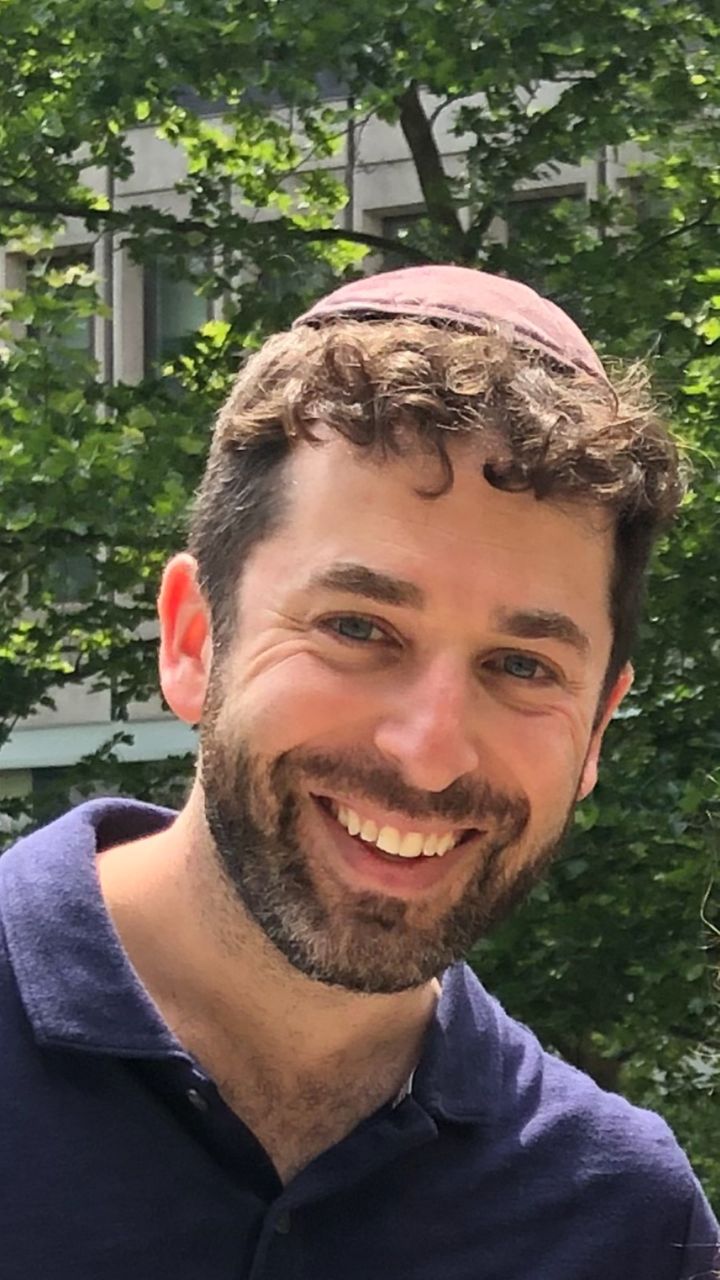
Dovi Ziffer took charge of the Ahavas Yisrael Errand-Coordination Program
“One group took phone calls, a second group shopped, and another group dropped off food, putting themselves at risk, and did not take a penny for it. Over 150 different orders were filled by countless volunteers who helped out.” mentions Rabbi Brull. “Our volunteers even went downtown to deliver some of these items to elderly self-quarantined individuals,” says Rabbi Brull. “Everything they did was under the guidance of the Rabbanim and a medical team. It was very special and they did it for many days. It was a tremendous Kiddush Hashem.”
This team also put together “Pesach Boxes,” which included essential items necessary for Pesach. In addition, a warehouse filled with food and necessary items, that would be needed but hard to come by, was assembled.
Under the advice of our Rabbanim and doctors, our Ahavas Yisrael volunteers, with a skeleton crew, continue to deliver Thursday night food packages, in addition to the $325,000 that was mailed to families in need before Pesach.”
One innovative shopping initiative was 7 Mile Market and Market Maven’s Post-Pesach package program, in partnership with The Baltimore Jewish Community Task Force on COVID-19. Many of our local groceries and restaurants continue to work on ways to provide us with groceries/food in a manner that ideally limits our visits to stores.
An independent, all-volunteer community shopping effort that was enacted in response to corona is Zeh L’Zeh. Originating in Toronto, it is now in 15 different communities, including Yerushalayim. One of nine hotline dispatchers arrange for a volunteer to shop for the caller.
“In Baltimore, Zeh L’Zeh services anyone who is quarantined for any reason or is avoiding getting out due to health concerns or is having difficulty getting out,” an organization spokesperson told me. “It is pretty broad; we are trying to help whomever needs help right now.”
And, for the benefit of our local stores that are now struggling because they are closed or in reduced demand, Ahavas Yisrael, the Baltimore Taskforce for COVID Response and Baltimore Jewish Life put a gift card initiative into place so these store owners can get income now for shopping that can take place within 6-12 months or, in some cases, beyond. Here's your opportunity to help: https://giftcards.baltimorejewishlife.com.
Out of Work?
A committee was created to help those people who suddenly found themselves out of work.
“There is an unemployment help team, guiding those who need advice to see if they are eligible for Unemployment and to assist them in applying if they are,” notes Rabbi Brull. “The government enacted many programs that people may apply for, including small business loans. Ahavas Yisrael, Mesila, and a group of accountants are available to help guide individuals navigate the system (https://jcovid.com/).

Another group, comprised of a number of baal habatim, came forward to provide loans to those who are unemployed or until the government programs come through for them.”
Brightening the Lives of Widowed Women
On erev Pesach, about 80 local women were surprised to find a gift of the newly released book, “The Rebbetzin”, and a Kosher L’Pesach candy and nut assortment, at their door. It was the inaugural gift from a newly formed organization in Baltimore, called Yedid. Patterned after organizations in New York and Toronto, Yedid strives to fill the gaps of other organizations by attending to the hands-on, nuts-and- bolts needs of almanahs.
Yedid hopes to offer services including - but are not limited to - everything from providing luluv and esrog and setting up Chanukah licht to having a handyman on call, shoveling a driveway, plunging a toilet, and fixing a leak.
Amazingly, the organization sprang into action just three days before Pesach, just in time to brighten up the lives of many an almanah in quarantine, most of whom were celebrating yom tov and - for the first time ever – dauntingly making the seder alone, sans relatives and friends. The committee had Zoom meetings into the wee hours to formulate the list of beneficiaries who would be in town for Pesach.
To sign up for Yedid’s services or to get involved in this wonderful new organization, please contact: yedid@misaskimmd.org.
Sweet Gratitude for Health Care Employees
A couple of pre-yom tov teleconferences, where local physicians answered questions that were sent into Bikur Cholim of Baltimore, was extremely helpful for community to learn what to do about spending Pesach in quarantine, in addition to other general concerns.
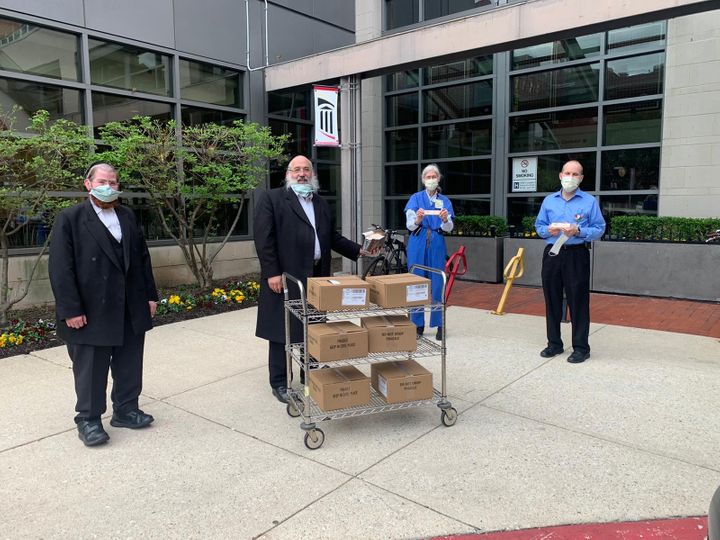
Bikur Cholim Executive Director Rabbi Pinchos Rabinowitz shared with me additional efforts which have kept his organization busy.
“We are still able to deliver food packages to patients, but now that hospital patients are not allowed visitors, I try to keep their family members updated as much as possible by talking to the hospitals and the doctors, and via video conferencing.”
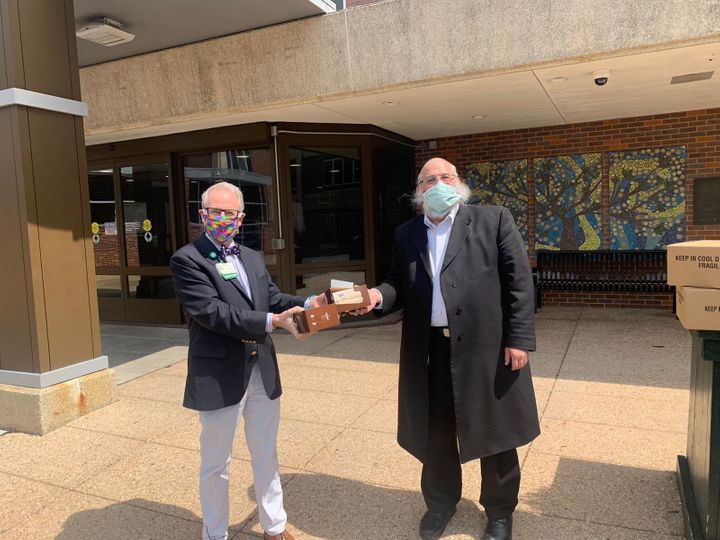
In addition, in an effort jointly spearheaded by Bikur Cholim and Misaskim of Maryland, a whole run of specially wrapped chocolates were distributed to different medical facilities in Baltimore, including Sinai, Hopkins, University of Maryland, and GBMC, to show our community’s appreciation for all of the health care workers who are on the frontline.
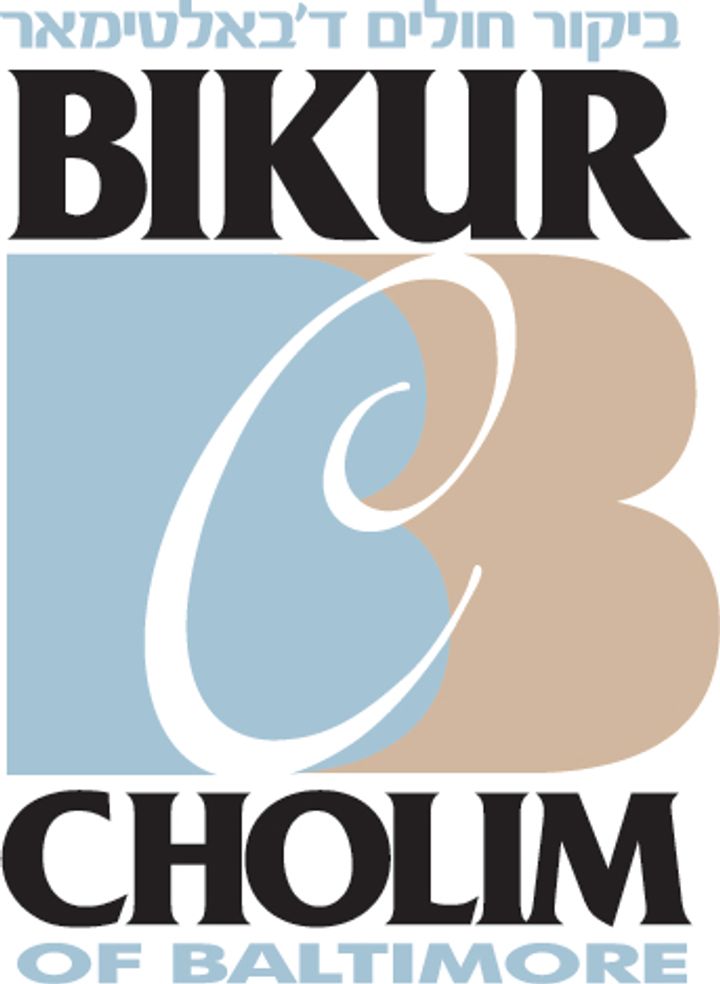
“We’ve been getting a lot of very good feedback,” remarks Rabbi Rabinowitz. “The health care workers were happy to be recognized.”
Caring for the Casualties
When Misaskim volunteers were not giving out chocolate, they were busy attending to the needs of the aveilim in our community.
Misaskim of Maryland President Aryeh Leib Freedman shares, “When this pandemic started in the community, the psak we got from Misaskim’s Rav was to halt all deliveries of shiva items for the purpose of avoiding the spread of germs by way of the actual items, like chairs, tables, and siddurim and to protect our volunteers who go in and out of houses. The exception to this psak was to deliver a seven-day shiva candle – which we left outside the houses of the aveilim in a bag, together with a copy of “The Mourner’s Companion” by Rabbi Reuven Drucker.”
Ordinarily, Misaskim has cases of different seforim - Hebrew/English/Sefardi/Chasidishe books about mourning - that it lends out, but because of the pandemic that has stopped for now. Sol Levinson discontinued deliveries, as well, so these people were left with nothing. From the time of the psak through chol hamoed Pesach, Misaskim delivered about 30 bags.
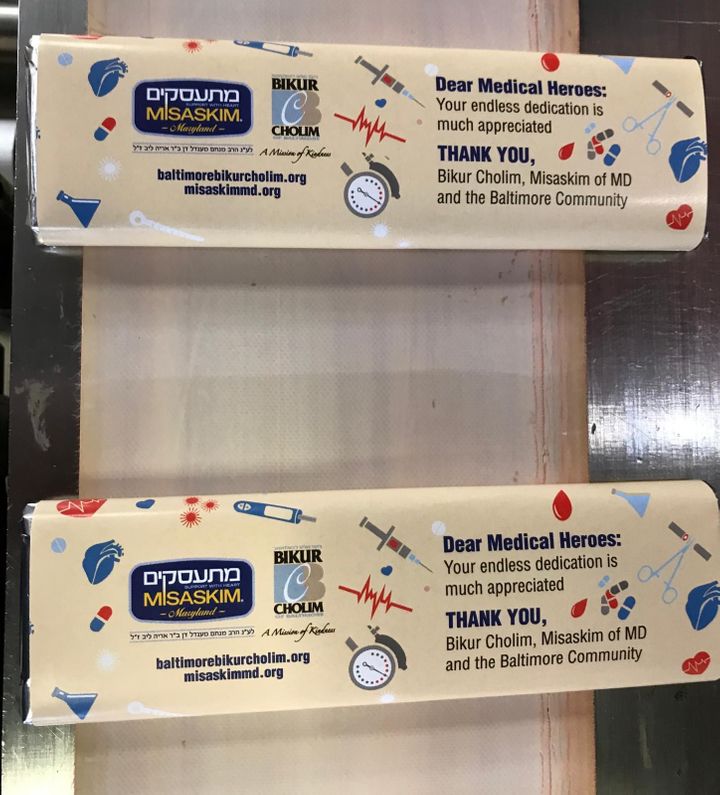
“Before and after yom tov, the calls kept coming, unfortunately, asking what they should do about sitting on a low chair,” recalls Aryeh Leib, who notes they didn’t need folding chairs since no one was coming to be menachem avel. “We purchased a large supply of new chairs, with no intention of collecting them after shiva. It took our volunteers a few hours to deliver 20 chairs to the front yards of the shiva houses on motzei yom tov – along with another seven-day candle, since the first candle we delivered to them would not last until the delayed shiva was over. We just wanted to help the community out the best we can.”
Hatzalah to the Rescue
Dr. Elimelech Goldstein of Hatzalah informed me that responders now have to wear complete protective equipment before entering any call - including eye protection, an N-95 mask, gloves and a gown – to protect themselves from contracting corona.
“We let the community know that it should only contact us when it is a true medical emergency, in anticipation that there would be a surge of calls -- we didn’t want to have resources tied up for things that are not necessary [https://www.baltimorejewishlife.com/news/news-detail.php?SECTION_ID=1&ARTICLE_ID=129889]. The community has been very compliant with that. Our call volume has actually gone down during this, but the calls we’ve gotten have been very real. We also have been screening the calls to make sure that the person truly needs an ambulance to respond to them.”
Sometimes, says Dr. Goldstein, people call because they have a question. After talking to them, Hatzalah is able to assess the need for them to go to the emergency room, needlessly, preventing them from being highly exposed to corona. One of the questions the dispatcher will ask is, ‘Do you need the ambulance?’ If they say they don’t, but don’t know what to do, someone call them back to assess their concern.
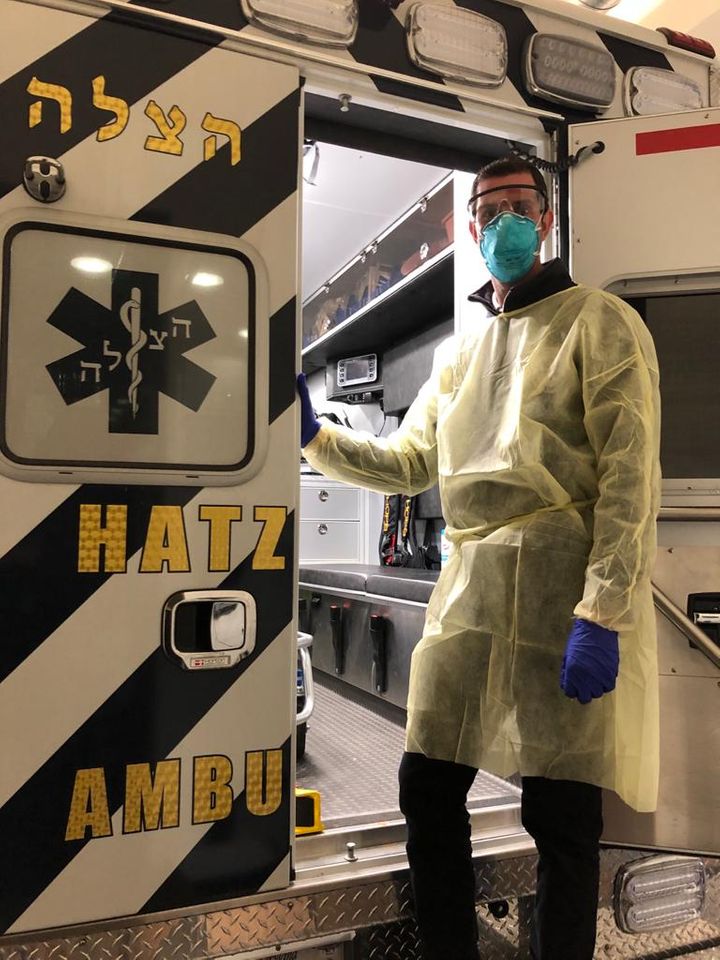
Hatzalah volunteer Tzvi Pensak protectively suited to respond to a call
Additional precautions have been taken, in compliance with the governor’s orders, in how the ambulances are cleaned and closing the door between the front and back of the ambulance.
“We also had to change how we do things when we get to the hospital,” notes Dr. Goldstein. “Normally, you go into the hospital with your patient, but now they have a tent, for example, outside of Sinai, where you have to deliver the patients to the tent, after which the patient is taken into the hospital when it is determined it is safe to do so. So, EMS providers don’t go into Sinai anymore. At the University of Maryland, we meet the nurse by the door and they take the patient from us. At Hopkins Pediatric, we go in, see the triage team and they take the patient from us. We never end up going into the emergency room. We’re taking precautions, the hospitals are taking precautions, for everyone to stay safe.”
By the way, a lot of the Hatzalah members have also had to shave their beards – including their beards on the second day of yom tov, and including Dr. Goldstein who shaved after 37 years! – in order to give their N-95 mask a more secure seal in order to be protected. People don’t recognize them and have asked responders who they are, why they look different, or why they shaved.
From Traffic Control to Jump Starts
Also continuing to respond to our community in protective gear with some new protocols in place is Chaverim emergency services, which during the pandemic has helped with everything from traffic control during the Bnos Yisroel food distribution and the PLASMA blood drive at Bais Yaakov, to giving a much appreciated and needed jump start to a young mother who had many perishables in her car in the Seven Mile Market parking lot and a nurse who needed to get to work. It is still responding to all essential calls for help, such as lockout services and other emergency services as needed.
Sinai Hospital’s Incident Command Center
Dr. Jonathan Ringo, Senior Vice President, LifeBridge Health, remarked that as soon as the pandemic was realized over a month ago, Sinai Hospital began setting up an Incident Command Center which included representatives from clinical facilities, security, intensive care, nursing, and other departments.
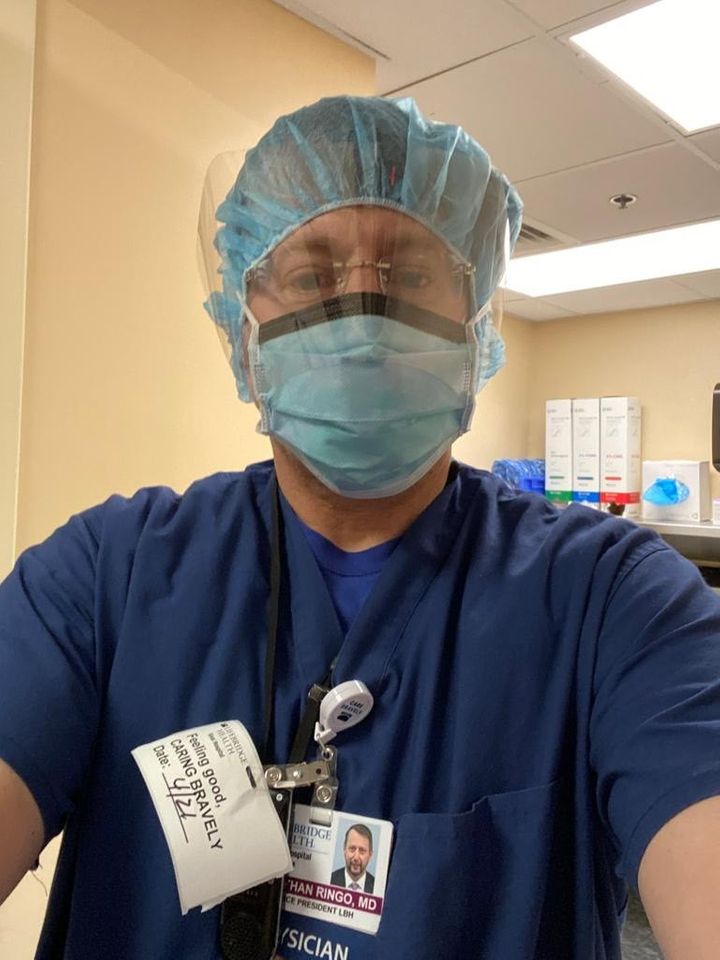
“They speak multiple times a day, checking on the number of patients who are coming into the emergency room, checking on the number of patients who are in the hospital, making sure we have the equipment,” mentions Dr. Ringo. “Teams of people have been working around the clock regarding getting equipment and manufacturing equipment, to make sure we have what we need for our patients and staff members. We partnered with Under Armour on making masks and gowns.
“We’ve been keeping very close tabs on what’s happening in the community and across the state and the country, making sure that we have the right capabilities to take care of these patients, both from the intensive care perspective – making sure we have enough ventilators and critical care capabilities in the hospital – as well as the protective equipment for our staff. We’ve also set up drive-through testing.”
Dr. Ringo adds that in partnership with the state, and from the beginning, Sinai has been in touch with Rabbanim in the community to make sure that there was awareness of the requisite measures to protect individuals, such as keeping safe distancing.
“There have been a number of efforts that the community has initiated, like delivering meals to the hospital, spearheaded by Rabbi Silber and some community members,” notes Dr. Ringo. “The hospital and the health care workers were very grateful for that…It is important that everyone maintains all the recommendations of the Vaad Harabbanim and the state have put out, for their own protection and that of the people working in the hospital.”
Our Liaison in Annapolis
In the meantime, Rabbi Ariel Sadwin, Executive Director, Agudath Israel of Maryland - Mid-Atlantic Region, has been involved in many different groups that are involved in many different aspects, whether it is the JCOVID site or the financial programs, but most exclusively he has been involved in working with the Governor’s Legal Counsel’s Office.
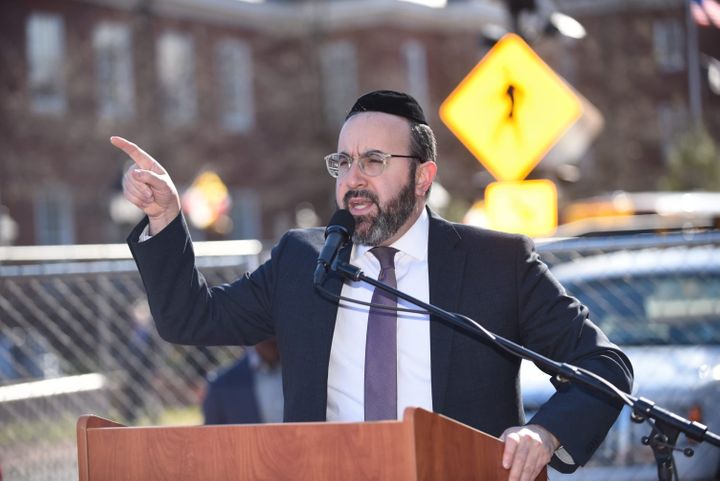
“Most recently, we are working on the registration of potential plasma donors,” notes Rabbi Sadwin. “Those who are recovering from having the virus are able to provide blood plasma which can be used to treat current patients. It is a developing concept – the testing is still ongoing, but the opportunity is right and without a cure or vaccine we are grasping at anything that can be potentially helpful. Mostly, though, I have been advising and answering the many questions regarding the governor’s executive orders that are specific to our community, as the executive orders have limited access over the last month. “
Every time there is a new executive order, Rabbi Sadwin has to see what it means to our community.
“For example,” he shares, “if you are making a wedding and the maximum that can attend is ten – and you need to include a minyan, what happens to the kallah, her mother, and mother-in-law? I had to go explain to the governor’s office what the significance of a minyan at a chasuna is – to get them to understand and work with them so it would be permissible.
“Another example is Mikvah. It is not included on the list of essential businesses. How do you explain to them why mikvah is essential? It is not like a spa where you go to relax. It has a religious component. It was a matter of explaining to them its essential purpose and that there are no health concerns, since the highest level of cleanliness and sanitation are being upheld, to get the governor’s office to commit that this is a permissible use if someone is stopped by a police officer and asked why are you out. Are you doing something essential? That clarification from the Governor’s office was put into place.”
Another one of the specific areas within the government stimulus programs that Agudath Israel of Maryland is heavily working on, is to ensure that Maryland non-public schools will have access to the millions of dollars that each state is getting to assist their schools with payroll and online learning tools. Public schools are the target, but non-public schools are entitled to equitable participation, too.
Shout Out to the Schools
I had the opportunity to speak to Torah Institute of Baltimore President Rabbi Hillel Tendler who mentioned that all the schools are working together during this pandemic, as they always have in the past, regarding communal issues.
“There was not much time for the schools to set their plans; every school scrambled to put together as much as they possibly could so close to yom tov,” notes Rabbi Tendler. “Once the governor made the decision to close the public schools, it was a given; until then, we weren’t sure.”
Each school independently came up with their programming, sharing ideas on the teacher-level. Some schools offered Zoom video technology for student participation. Torah Institute, for example, did not, in order to accommodate those parents who do not have internet at home.
“We had no intention, no plan to go about remote learning,” recalls Rabbi Tendler. “The only ones who were adept in it and offered it right away to all the schools is Chabad, because they have a remote program for the shluchim all over the world. They were phenomenal on jumping on it immediately.”
“The teachers are phenomenal,” says Rabbi Tendler. “They have to put together their materials and programming…It’s just not the classroom time, but the time they are preparing and giving over these materials in whatever manner they are giving them over – whether it is worksheets being picked up on the porches of their houses, or by email, on a phone recording, or Zoom. Then, there’s the follow up of speaking to each student and parent to discuss how things are doing. It’s a lot of time and effort – a new effort in keeping the talmidim engaged. Teachers, perhaps, have always been underappreciated and I think parents have a new appreciation for them now.”
Concludes Rabbi Tendler, “Our schools are obviously staying closed – we are not opening yet, we are not necessarily tying ourselves to the May 15th projected public school opening, but we very much appreciate that Governor Hogan has not opted just to close schools for the rest of the school year, for, perhaps, things will improve. We will definitely not open up before it is safe to do so, that’s for sure! We are continuing our payroll fully, Boruch Hashem. We obviously understand that some parents are having a difficult time - now that their work hours may be cut or their jobs may be eliminated, c”v - and we will work with them.”
Caring Lifelines
Jewish Caring Network Director of Operations Stacey Goldenberg notes, “During the pandemic, JCN has helped the families it services in a magnitude of ways, custom-tailored to their needs, as always -- sadly, that includes helping with shiva needs.
“JCN volunteers help families who have a loved one with a weak immune system - rendering it unsafe for them to go inside stores - by shopping for them in Target, Walmart, 7 Mile Market, Market Maven and Costco, in addition to running other errands.”
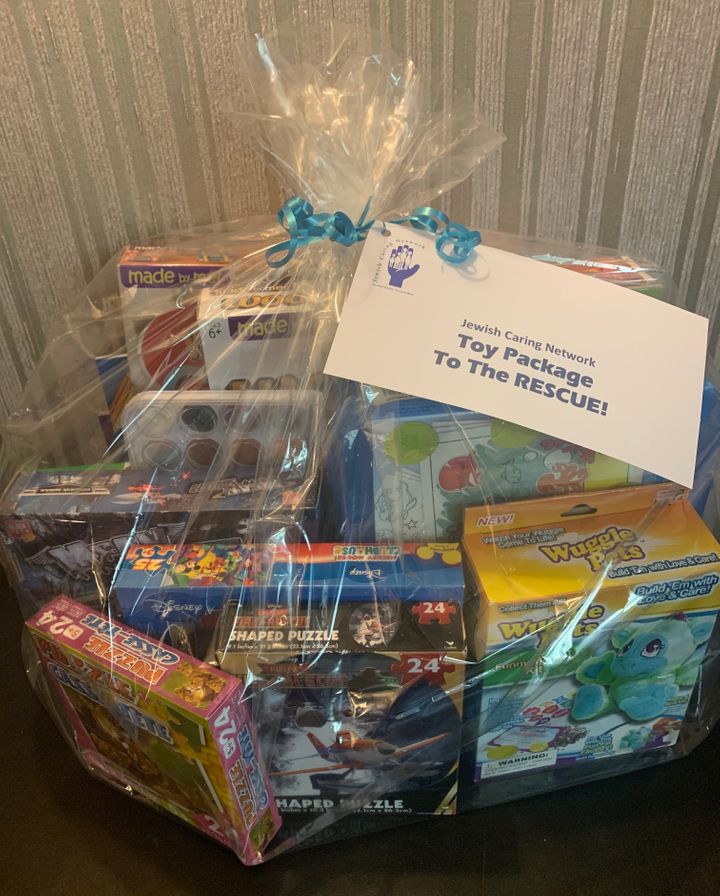
Prior to Pesach, JCN prepared seder plates for families to take one more thing off their “plate” and made “Survival Toy Packages” for their children, which included toys, arts and craft kits, and games so they can be occupied at home while school is not formally in session. Chai Lifeline Board of Director member Avigail Rosemore, jumped in to help out JCN, too, by putting together a wish list for JCN families. JCN is so appropriative to our amazing community who responded in droves.
(L-R) Chai Lifeline Board of Director member Avigail Rosemore and Jewish Caring Network Director of Operations Stacey Goldenberg
Avigail Rosemore notes, “We are all impacted by this global health crisis, however, children with weakened immune systems and their families are particularly at-risk right now. In the past few weeks, Chai Lifeline has seen a surge in demand for its services and we’re committed to helping everyone as best we can.
“Chai Lifeline is focused on providing immunocompromised children and their families critical services, including meals delivered to hospitals and homes, emergency financial assistance, personal protective equipment, grocery and pharmacy shopping assistance, and care packages for quarantined children. Our families, already overburdened with medical expenses and the difficulties of caring for a child with life-threatening or lifelong illnesses, are struggling to get through this.”
Chai Lifeline has launched an emergency response campaign to help Chai Lifeline families in our community impacted by COVID-19. Further information is available at: www.isolatedtogether.org/chailifeline/Midatlantic
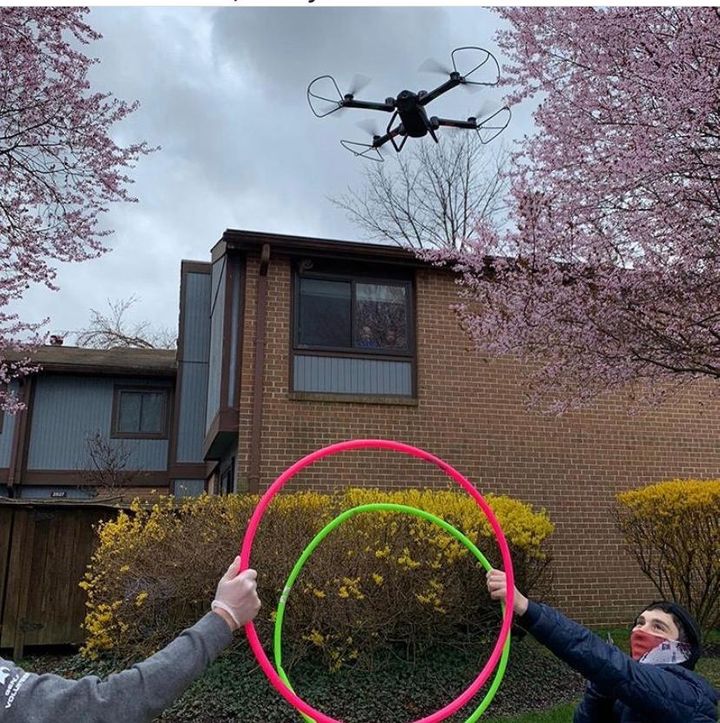
Volunteers socializing distantly with children serviced by Chai Lifeline.
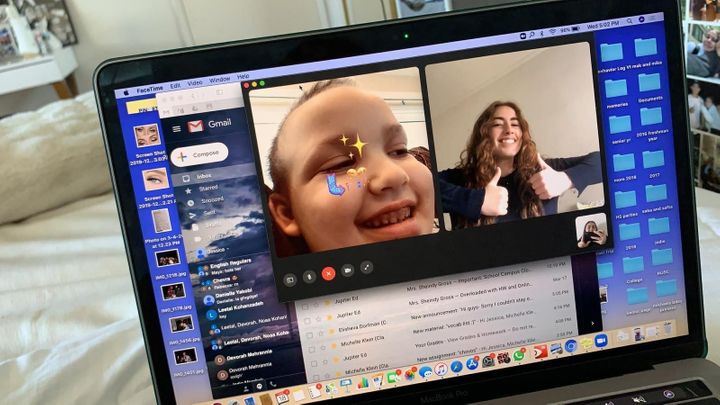
Volunteers socializing distantly with children serviced by Chai Lifeline.
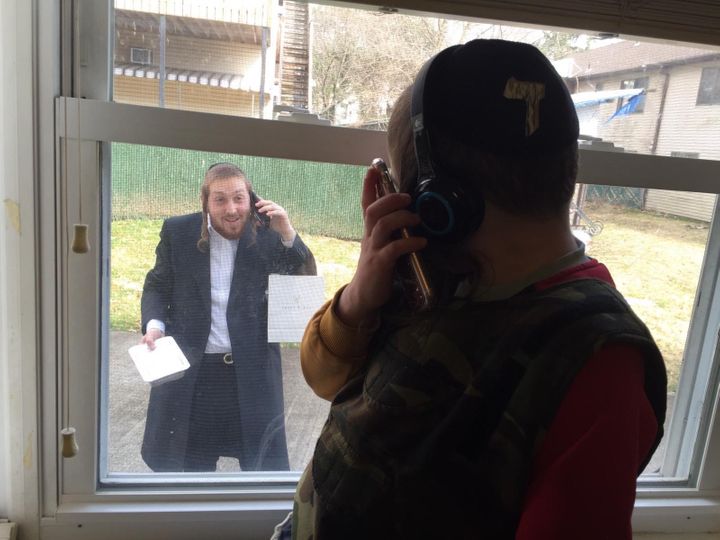
Volunteers socializing distantly with children serviced by Chai Lifeline.
Providing Menucha
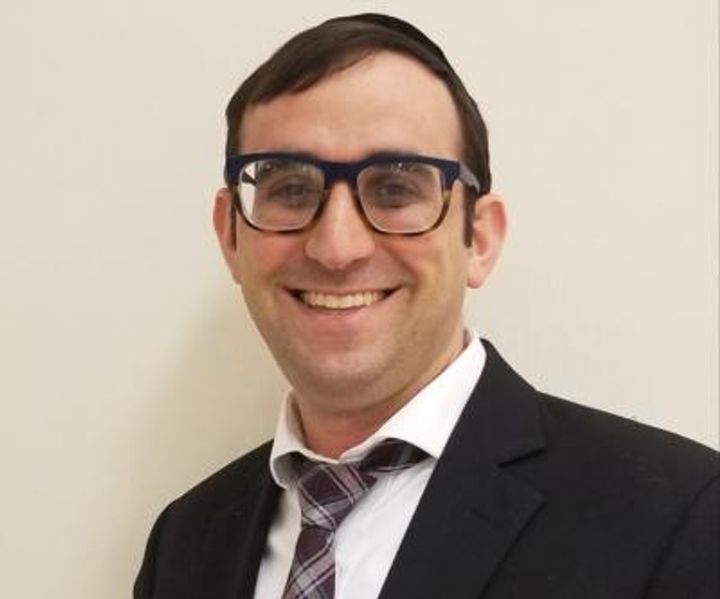
Menucha Director Rabbi Aryeh Richter explained to me, “What we do to support Jewish children who have special needs and their families -- on a regular week-to-week or day-to-day basis -- is provide a social circle for the children, where they can meet like-minded people and people who understand and respect them for who they are, while providing respite for the family. Because of circumstances now, we had to cancel all our physical programs. Understanding what that means for the participants, our many volunteers personally reach out to them to lift their spirits just a bit. We also have frequent Zoom conferences, such as our Mishmar program run by Rabbi Mordechai Abrahams, which now meets every single night instead of twice a week, and our evening program led by Miriam Waxman.
“They can see their friends and communicate with them; at the same time, it offers a lot of students who cannot be in a Jewish school, the opportunity to learn Torah with a very strong social benefit,” says Rabbi Richter.
In addition, Menucha keeps the families informed by sending informational emails to parents that mention helpful resources and different types of assistance available.
Concludes Rabbi Richter, “We are limited – throughout the year we send volunteers to people’s house and, obviously now, we cannot do that. We also offered cleaning help to our families before Pesach to help them make Pesach. We are doing whatever we can, circumstances permitting.”
The Beat Goes On…More Than Ever
Weeks ago, when Governor Hogan declared only essential businesses and services can be operating, the Northwest Citizens Patrol (NWCP) contacted Baltimore City and County Police.
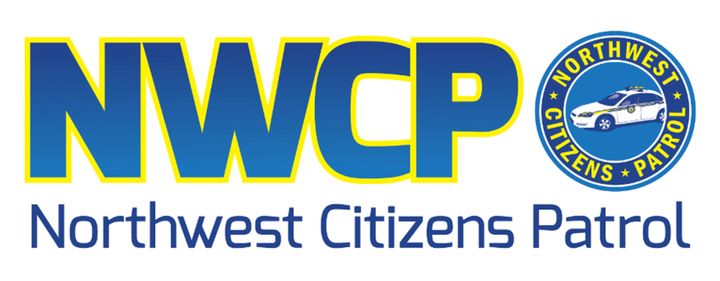
Mentions NWCP President Nachman Schachter, “Both affirmed that the NWCP is an essential service and requested that we continue patrolling. We immediately put into practice the disinfecting of the equipment between volunteers and social distancing to make sure that our volunteers are safe during the COVID-19 pandemic and to be in compliance with the Governor’s regulations. We thank all of our community volunteers who continue to serve the community and wish everyone much success and health during these unprecedented times.”
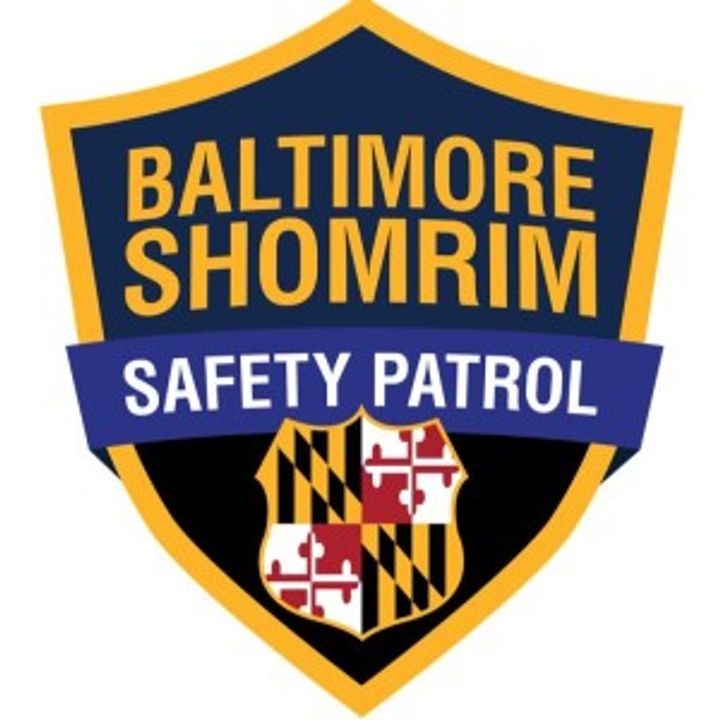
Baltimore Shomrim Safety Patrol President Mike Diamond shares, “The BSSP continues to be responsive and a resource for our community. Our primary concern is the health and safety of everyone dealing with the increasing challenges being presented by the COVID-19 pandemic. We implore our community to follow all health and government guidelines to stay safe and protect others from being infected by this deadly virus.
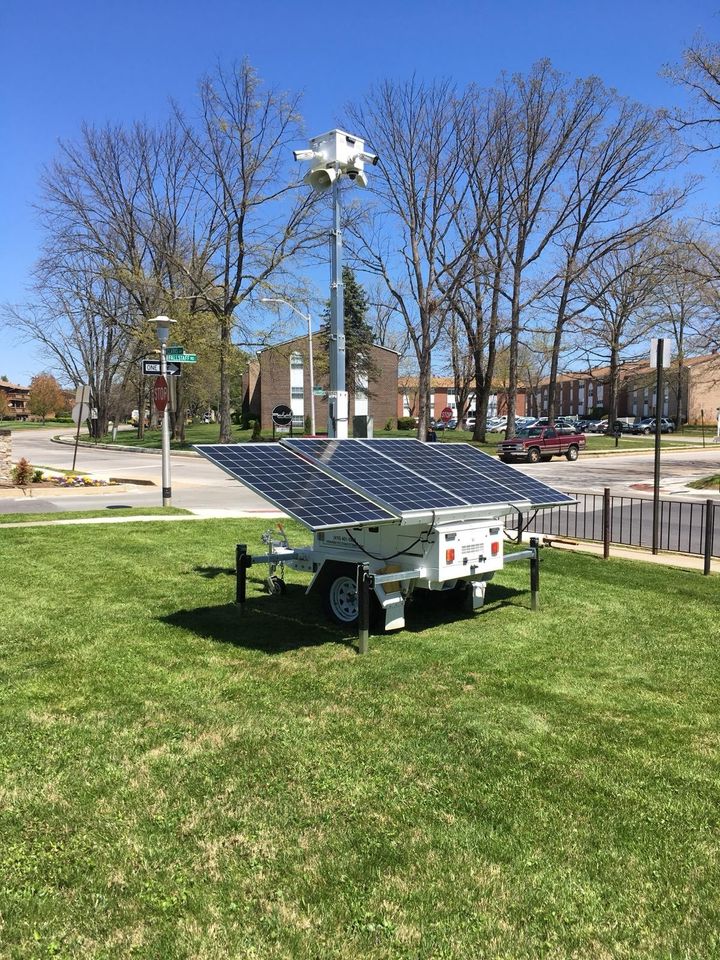
“From adding enhanced security camera technology – generously donated by Vision Detection Systems – to lending operational logistics for food programs, to coordinating with other community response organizations, we have never been busier. Our ability to regularly communicate with elected officials and law enforcement allows us to offer information and comfort to those who need it most. Emergencies bring out the best and worst of society. We are so proud of all the positive and charitable work our responders and community are doing in these unprecedented times.”
Providing Much Needed RELIEF
RELIEF Director Rabbi Yisrael Slansky explains the main function of RELIEF is making mental health referrals – connecting those with small and large mental health needs with the correct level of care, such as psychologists, therapists, social workers, psychiatrists, in-patient and day hospital.
“The small component we deal with is mental health education, but during the pandemic this component has increased,” notes Rabbi Slansky. “We’ve been hosting many teleconferences since the very beginning of the pandemic - just not geared to our specific Baltimore community, but to the national and international populations that RELIEF serves… With this service we aim to empower our community with the skills necessary to cope with the current situation.”
RELIEF’s teleconferences, featuring top-of-the-line speakers including Dr. David Pelcovitz and Dr. Lori Evans, have had thousands of callers listening in from around the world. They are a tremendous asset to the whole Jewish community at large.
“As much as people are struggling with mental health needs, it is very hard for people, right now, to get to a therapist; even the responsibility of a 45-minute teletherapy session is overwhelming to those taxed with things like remote learning and telecommuting,” says Rabbi Slansky. “Additionally, those who want to start fresh with a counselor may find it intimidating to begin establishing a rapport with a therapist, remotely. So, these teleconferences have been very beneficial for many people. However, many are reporting that these teletherapy sessions are beneficial and I would encourage anyone struggling to reach out to discuss options.”
In addition to posting a lot of the JCOVID site’s mental health resources, Rabbi Slansky and other RELIEF representatives, spend a great deal of time checking up on, specifically, the isolated and elderly population of those they have made referrals to, so they don’t feel isolated and uncared for.
“As it is, isolation for the geriatric population and staying busy is always a challenge,” says Rabbi Slansky. “Now, when you isolate them and tell them they can’t leave their houses, it is even more taxing, so checking up on them and making sure they have what they need and connecting them with resources, including other organizations within our community from which they can benefit, is important.
“There have been efforts in the past many months for the community organizations to understand each other on a deeper level - exactly how each organization helps our community. It allows us to all interconnect with each other in a way that makes everyone’s service to the community that much more powerful. The pandemic has brought this even more to fruition.”
Providing Spiritual Relief
Six weeks ago, ten lectures brought much needed chizuk to our community in these uncertain times. “A Light in a Time of Darkness” was a collaborative project organized by Agudath Israel of Maryland, BaltimoreJewishLife.com, Kolrom Multimedia, and Mesivta Kesser Torah of Baltimore. On Vimeo, alone, there was a total of over 10,000 views.
“As all the schools and shuls were closing, there was a sense of dangerous times ahead filled with uncertainty,” notes Mesivta Kesser Torah of Baltimore Menahel Rabbi Avrohom Feldheim. “Normally, at a time of fear, when there is a problem in Klal Yisrael, we turn to the tzibur and to our Rabbanim and gather together for an asifa. Tragic times are generally a time of unity – that is how Klal Yisrael normally functions. But, when the shuls and yeshivas are closed and you can’t run to your Rosh Yeshiva or Rebbeim, where do you turn? How, I wondered, are we going to get everyone together and gather the inspiration that is needed most at this time of uncertainty?”
To provide this chizuk, Rabbi Feldheim turned to Baltimore Jewish Life which, in turn, approached Kolrom Multimedia. The three joined forces to make the broadcasting of “A Light in a Time of Darkness” possible, which was streamed live on Baltimore Jewish Life. The 9 p.m. nightly virtual asifa, after recitation of Tehillim (perakim 91 and 142) led by Rabbi Ariel Sadwin of Agudath Israel of Maryland, featured Divrei Hisorerus shared by local community Rabbanim, including: Rabbi Yaakov Hopfer, Mara D’Asrah, Shearith Israel Congregation and President, Vaad Harabbanim of Baltimore; Rabbi Tzvi Mordechai Feldheim, Rosh Mesivta of Mesivta Kesser Torah of Baltimore; Rabbi Shmuel Silber, Rav, Suburban Orthodox Congregation Toras Chaim; Rabbi Yissocher Frand, R’M, Yeshivas Ner Yisroel; Rabbi Yechiel Spero, Rebbi, Yeshivas Chofetz Chaim; Rabbi Shraga Neuberger, R”M, Yeshivas Ner Yisroel; Rabbi Moshe Hauer, Rav, B’nai Jacob Shaarei Zion; Rabbi Tzvi Teichman, Rav, Congregation Ohel Moshe; Rabbi Jonathan Aryeh Seidemann, Rav, Kehilath B’nai Torah; and Rabbi Eliyuh Hakakian, Rav, Ahavat Shalom.
In case you missed any of these powerful words of chizuk, click here.
Concludes Rabbi Feldheim, “There was an achdus in the community, as everyone stopped what they were doing at 9 p.m. to tune into divrei chizuk. We got amazing feedback; people said it really carried them through this transition of leaving a normal life and then going into quarantine. The tzibber has tremendous appreciation for all the Rabbanim, for giving up their time for this initiative.”
In the Trenches Together
Rabbi Shmuel Silber, Rav of Suburban Orthodox Toras Chaim, shared his personal reflections as a member of the Vaad HaRabbanim/Rabbinical Council of Baltimore, with me.
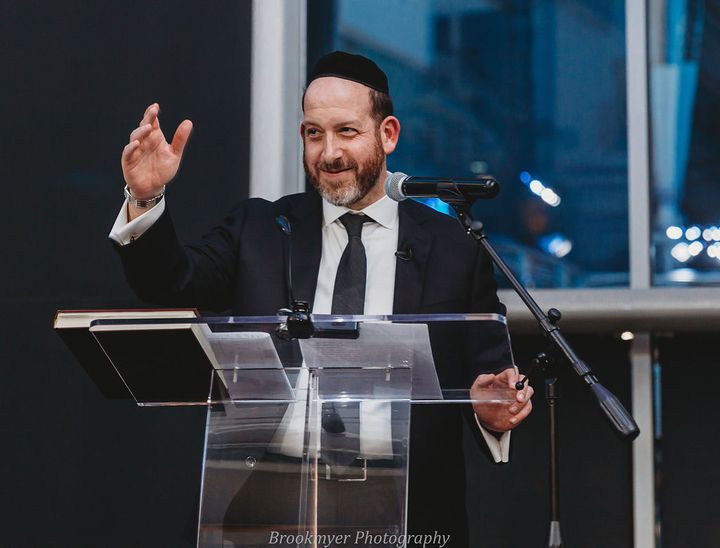
“Boruch Hashem, from the very beginning of this crisis, the Rabbanim of our community have really acted together, as one, and took the whole COVID-19 issue very seriously. First, with closure of shuls, reinforcing standards of social distancing and company – or lack of company – over yom tov. We have been united in that; we have spoken in one voice. I think it is manifesting itself in a heightened degree of compliance within the community. There is a synergistic partnership between the Rabbanim and medical professionals. Rabbanim aren’t doctors and doctors aren’t Rabbanim, and, Boruch Hashem, we each bring something very specific to the communal table. I think we can be very proud of our community in that we have seen a heightened level of synergy between the various segments of leadership in the community.
“We are holding firm in the standards that we put out before Pesach. We are not relaxing those standards because we really believe – in consultation with our medical professionals – that if all of us are just hyper-vigilant for the next number of weeks, then, iy”H, we have a real chance of allowing our community to the escape catastrophic circumstances that we have, r”l, seen in other communities throughout the world – and other Jewish communities just a few hours away. If all of us just stay strong, just for another couple of weeks, with the social distancing, with eliminating company, with out-of-state travel, we will be helping ourselves and helping our community – our neighbors and our greater community.
“We say, ‘If someone saves one life, it is as if they have saved an entire world’. When we speak about that phrase, most of us assume that it refers to a doctor, nurse or Hatzalah member or someone placed in heroic circumstances. Here, we have the opportunity to fulfill this mitzvah in a dramatic way – if you practice proper social distancing, if you avoid socializing in unhealthy ways to whatever degree possible, avoid going out to the supermarket and rely on delivery, if you take care of your health and the health of those around you, you are literally fulfilling the mitzvah of saving your fellow Jew, so we can emerge from this not only safe and physically whole, but enriched with the knowledge that, literally, we have saved each other’s lives.”
Concludes Rabbi Silber, “It has been a privilege to see how our community has come together in such a dramatic way. People working together with others whose paths may not have crossed, previously. Suddenly, we are all in the trenches together. I think we all know that Baltimore is a very special place, but to see everybody working together is beautiful – the chesed, the achdus, everything!”

